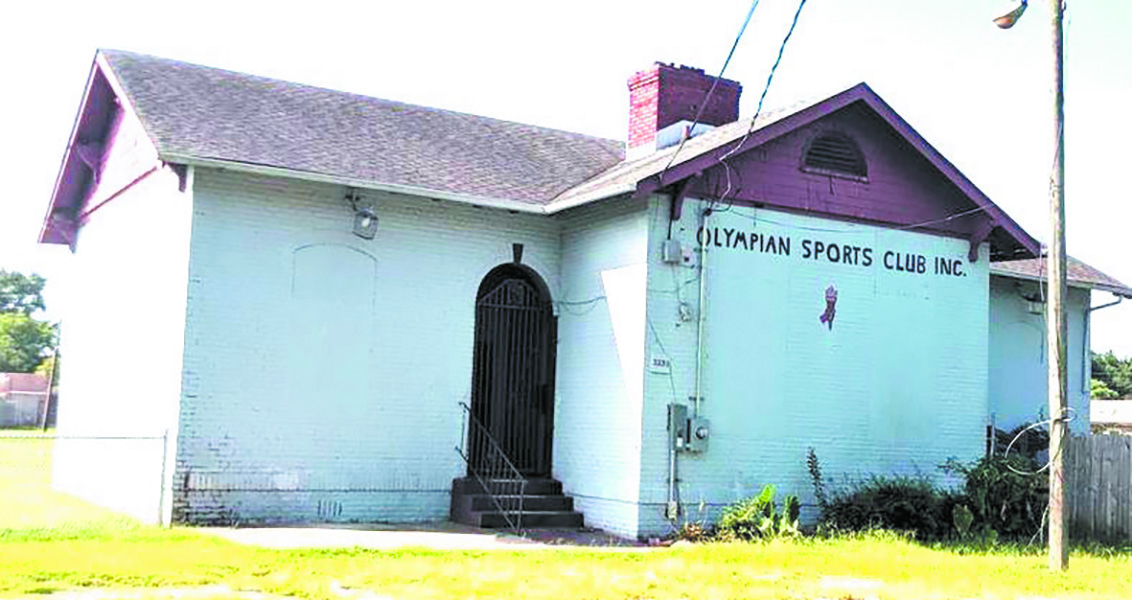Civil
Old School Building Used By Olympian Sports Club To Get State Marker
This article highlights the significance of the Key Road School in Portsmouth, Virginia, which served as an educational institution for African American children for nearly 50 years. The article discusses the efforts of the Olympian Sports Club to save the building from demolition and the recent news of the state historic designation received in the form of a marker. It also sheds light on the Rosenwald Fund’s contribution to the construction of schools for African-American children and the importance of preserving this piece of African-American history.

By Leonard E. Colvin
Chief Reporter
New Journal and Guide
Ten years ago, the city of Portsmouth targeted a small wood frame building in the Truxton Community for demolition.
The structure was used as a meeting place for the members of the Olympian Sports Club, an African-American organization that supports youth programming.
When word of the city’s intentions became evident, members of the club contacted the African-American Historic Society of Portsmouth.
Historian and former educator Mae Breckenridge Haywood was the President of the Historical Society at that time.
After some research, she discovered that the old building was of historical significance.
It was the Key Road School and was one of a network of “colored” schools in the city created to educate Black children.
Opened by 1921, the Key Road School in the City of Portsmouth served African American children in grades 1 through 7 for close to half a century. Funding for the school, which moved into a new building at the current location around 1926-27, came from the Black community, Norfolk County, and the Rosenwald Fund.
Recently Haywood and Glen Francis, the President of the Olympian Sports Club, got word that the building has received state historic designation in the form of a marker. This may save it from demolition.
The Key Road School was among five new historical markers approved by the Virginia Board of Historic Resources on March 16, 2023, during its quarterly meeting hosted by the Department of Historic Resources (DHR).
Other markers will highlight businesses in the City of Lexington that welcomed Black travelers during the period of racial segregation in the 20th century; a school founded by four sisters to teach young women in Mecklenburg County; and Virginia’s first community college to open under the Virginia Community College System, established in 1966.
Francis said that after the school ceased to exist, an organization called the I.C. Norcom High School Boosters used it as its headquarters. The Boosters were formed by Black businesspeople, including dentist and future Portsmouth Mayor James Holley, who formed it to support the athletic programs of I.C. Norcom High School.
Francis said the Olympian Sports Club took control of the building in 1971, as it continued to raise money for young Black athletes in Portsmouth. The building which is owned by the city has not been used since the COVID Pandemic.
In 2017, according to Francis, the club got word that the city had eyed the building for condemnation and eventual razing. This is when the effort to save it got underway.
“That building is not only a place where Blacks could organize fundraising,” said Francis. “Olympic great Jesse Owens, Joe Lewis, and other historic visitors entered that building when they came to the city.”
“This building represents that history, but it also is an example of how Black people organized educational opportunities for their community,” said Francis. “Plus, this is one of the 500 Rosenwald schools still existing. It has ties not only to the Foundation but to Booker T. Washington.
“They were about to tear that old building down,” said Haywood, who was excited by the news of the approval of the marker by the DHR.
“This is a rare situation where the building is still standing, and a historic marker is approved for it,” she said.
“Many of the early schools for Blacks were one and two-room schools. This is a two-room school. I am hoping this will be preserved for historic use to show current and future generations where Black people were educated before modern educational facilities were built.
Founded as the result of a partnership between the philanthropist and owner of Sears Retail, Julius Rosenwald, and educator Booker T. Washington, the Rosenwald Fund contributed to the construction of approximately 5,000 schools for African-American children across the South.
In Virginia alone, the Rosenwald Fund helped build more than 600 schools and 18 teachers’ homes and vocational buildings.
The Key Road School closed in 1965, and seven years later the Olympian Sports Club, an organization that supports young athletes in the region, made its headquarters in the former school’s building.
In addition to the Portsmouth marker that recognizes Black history, the forthcoming marker in the City of Lexington will recall businesses that appeared in the Negro Motorist Green Book that featured accommodations that welcomed African-Americans during the segregation era.
Following the Board of Historic Resources’ approval of the markers, it can take upwards of eight months or more before a new marker is ready for installation. The marker’s sponsor covers the required $2,880 manufacturing expenses for a new sign.
Virginia’s historical highway marker program began in 1927 with the installation of the first markers along U.S. Route 1. It is considered the oldest such program in the nation.














